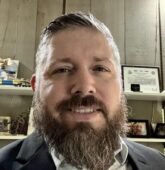
Trauma and PTSD therapists in Hobart, Indiana IN

Faye Williams
Therapist, Associate Licensed Marriage and Family Therapist
While PTSD is considered a disordered way of coping with trauma, what if your body is doing what they need to keep you safe? Trauma is always overwhelming and complex, even if it has occurred from an isolated event. It takes time and gentleness and patience to unravel its effects.
Rick Rodgers
Counselor/Therapist, MSW, LCSW, CADC, CCTP, RYT 500
Warriors Respite has therapist certified in trauma.
PSYCHe, PLLC
Psychologist, PhD, LPC, PsyD, MSW, Marriage and Family Counselor, LCSW
Post-traumatic Stress Disorder (PTSD) can develop from being exposed to a wide variety of traumatic events such as motor vehicle crashes, home accidents, sexual assault, domestic violence, or being involved in a natural disaster. As the Diagnostic and Statistical Manual of Mental Disorders (DSM-V) describes it, PTSD happens after “being witness to or being exposed to situations involving threatened or actual serious physical harm or death.” But it’s important to keep in mind that experiencing a trauma doesn’t mean a person will absolutely develop PTSD.
Karen Baumstark, Ph.D.
Psychologist, Ph.D., CMHIMP, CTACC
None of us can escape some level of trauma; inevitably, it will be a part of life. How much it affects us, however, depends on many factors including the nervous system we were born with, our outer resources, and how much relational support we receive to help us recover from the trauma. Many people do not have access to adequate resources to help them recover from trauma (and this is very subjective and personal, varying from person to person), and the trauma continues to affect them in (sometimes subtle, but still) impactful ways. If certain factors come together, PTSD may develop out of trauma. Often clients feel like they have failed because they can't completely "get over" their PTSD reactions. I have often reminded clients that PTSD is "the gift that keeps on giving". It can be very hard, perhaps impossible, to completely eradicate PTSD reactions, because the reaction is not just of the mind, it is of the whole body. My approach to helping clients with trauma and PTSD involves looking at it holistically and working to understand how the trauma changed you, your reaction across many facets of your life (thoughts, feelings, habits, behaviors, self-care or lack thereof, expectations, how you view the world), and then working on replacing what is harmful with what is helpful. The goal isn't to completely get rid of the PTSD symptoms (which is likely impossible) but rather to dramatically reduce its effect on you, so you can live your best life, and so an occasional symptom breaking through will not derail you.
Alan Archibald
Licensed Clinical Social Worker, LCSW, Certified TFCBT, Certified Family Trauma Professional
Trauma & PTSD – The impact of trauma is powerful in that the experience of the past is stored in our memories as a survival mechanism of our brains. The reminders of trauma then occur in situations where there is no need for a survival response. We end up with frequent reminders of the trauma, that bring it into the present instead of letting it fade into the past. Methods are used involving education about the body’s vagus system, visualization, sensory soothing, and new strategies to reduce the intensity of intrusive memories.





